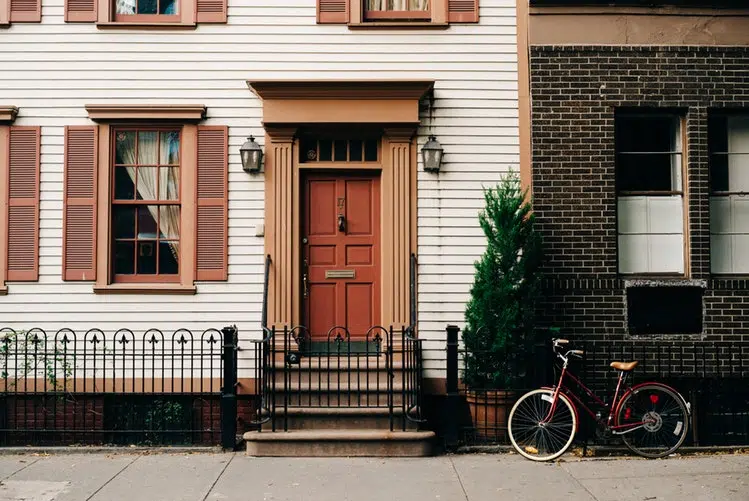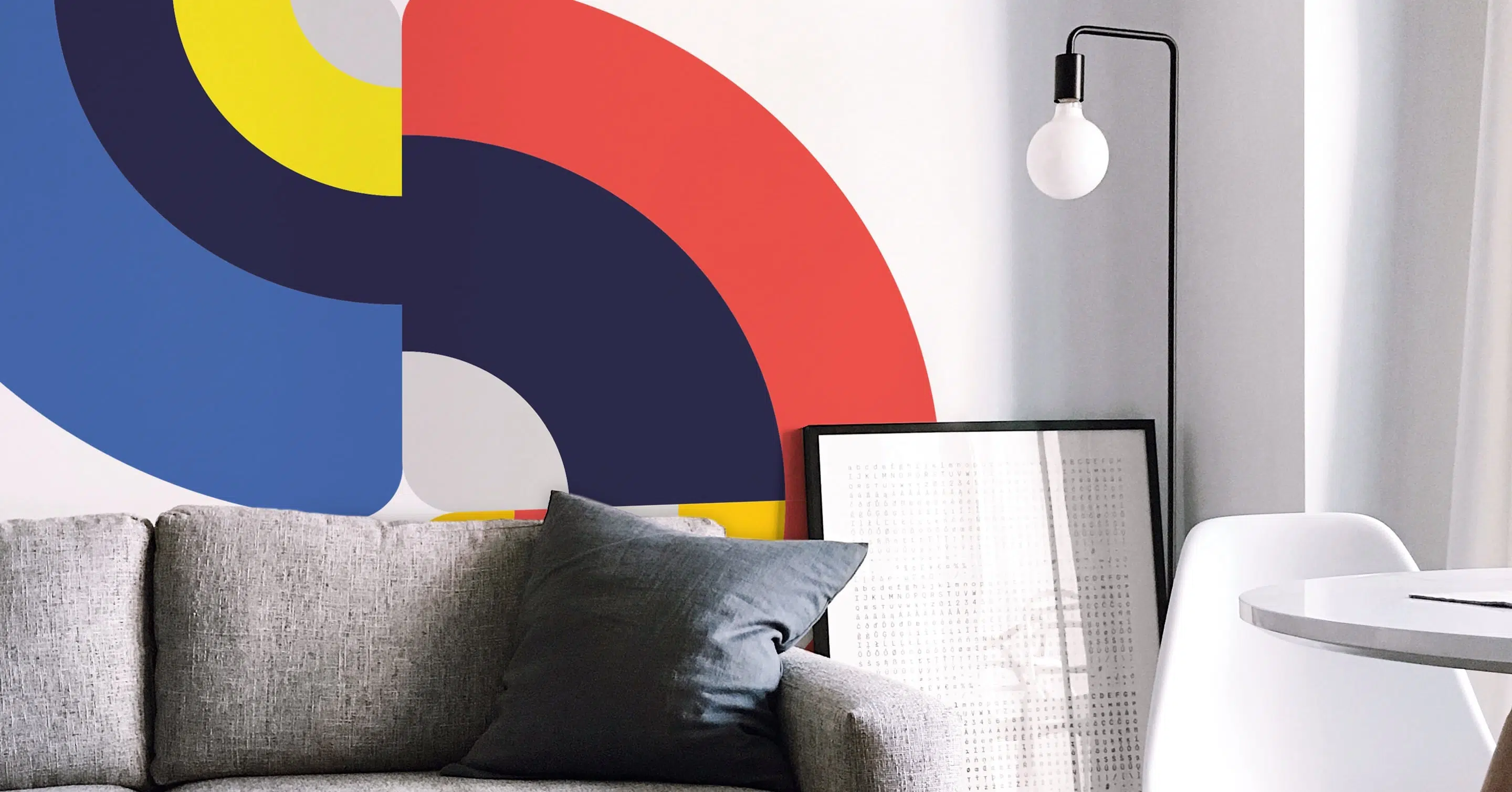Are You Ready to Buy a Home?

Buying your first home is a major milestone that can significantly impact your lifestyle, finances, and sense of security for years to come. For many, this milestone signals stability and accomplishment, but it also comes with significant responsibilities and decisions that warrant careful consideration.
Before you start scrolling through listings or picturing yourself picking up the keys to your new home, it’s worth asking a simple question:
Are you truly ready to buy a home?
Are you financially ready to take on a mortgage and all the responsibilities that come with homeownership? The answer to these goes far beyond how much you’ve saved for a down payment. Whether you’re tired of renting or planning for your future, knowing what to expect can help you feel more confident that you are ready to become a homeowner.
Key Takeaways
- Ensure your finances are in good shape by evaluating your income, debts, and credit score.
- Consider how your lifestyle, career stability, and long-term goals align with the prospect of owning a home.
- Understand how the stress test may impact your budget and ability to get approved for a mortgage.
What Does Being Ready to Buy a Home Mean?
Being ready to buy a home goes beyond having enough money for a down payment. It’s also about being prepared for the ongoing costs of ownership and how becoming a homeowner fits with your lifestyle. Financial readiness means having a steady income, manageable debts, and savings set aside for your down payment, closing costs, ongoing maintenance, and unexpected repairs.
You should also feel confident about where you want to live and the lifestyle you want to maintain. Buying a property usually ties you to one area for several years, so think carefully about whether your job, family plans, and social connections align with staying put.
Assess Your Financial Health
Before browsing listings or calling a real estate agent, take time to examine your financial health in detail. Understanding exactly where you stand can help you set a realistic budget, avoid surprises, and feel more confident when you’re ready to apply for a mortgage.
Lenders use debt service ratios when assessing whether you have the financial capacity to take on a mortgage. These ratios measure the percentage of your gross income that goes toward debt repayment. There are two main ratios:
- Gross Debt Service (GDS): This measures the percentage of your income needed to cover housing costs, including mortgage payments, property taxes, heating, and 50% of condo fees, if applicable.
- Total Debt Service (TDS): This adds all other debts (like car loans, lines of credit, or credit card payments) to your housing costs.
For insured or insurable mortgages, your GDS should be no more than 39%, and your TDS should be no more than 44%. Staying within these guidelines helps you avoid becoming house-poor and ensures your mortgage payments remain manageable alongside your other debt obligations.
Understanding the Stress Test
All buyers who choose a federally regulated lender for their mortgage are required to pass a mortgage stress test. This is designed to ensure that you can still afford your mortgage if interest rates rise in the future.
When you apply for a mortgage, your lender will calculate whether you qualify using the higher of two rates: the Bank of Canada’s benchmark minimum qualifying rate (MQR) of 5.25% or your contract rate plus 2%. This means that even if you agree to a 5% mortgage rate today, you must demonstrate that you have the financial capacity to handle payments at 7% if rates increase.
The stress test can reduce the maximum amount you’re approved to borrow, so it’s a good idea to run the numbers early. Using an online mortgage affordability calculator or speaking with a mortgage expert can help you see how the stress test affects your budget before you start shopping for a home.
Understanding Your Credit Score
Your credit score can significantly impact your mortgage options and even the interest rates you are offered. In Canada, credit scores range from 300 to 900, with higher scores showing you’ve demonstrated strong borrowing and repayment habits over time. The minimum credit score required to qualify for a mortgage varies depending on the lender, but 650 is typically the minimum score most lenders require.
If your score is lower, you may still be eligible for a mortgage, but you’ll likely face a higher rate, need to make a larger down payment or explore alternative lending. Improving your credit doesn’t happen overnight, so if your credit score needs work, it’s important to find ways to boost your score as soon as possible.
To improve your credit score, pay down your credit card balances, ensure your credit utilization ratio is no more than 30% of the credit limit at any given time, and pay all bills on time. Additionally, you will want to avoid applying for new credit at least 6 months before applying for a mortgage. Applying for new credit can affect your credit score in the short term due to a hard credit inquiry, affect your debt service ratios, and hinder your ability to be approved for a mortgage.
Saving for a Down Payment
Your down payment is the foundation of your home purchase, and it affects not only how much you borrow but also whether you’ll need mortgage default insurance. In Canada, the minimum down payment depends on the home’s price:
- Up to $500,000: 5% of the purchase price.
- $500,000–$1,499,999: 5% on the first $500,000, plus 10% on the remainder.
- $1.5 million and above: A minimum 20% down payment.
For many first-time buyers, saving this amount requires years of careful planning. You can draw on your savings, tap into the Home Buyers’ Plan (which allows you to withdraw up to $60,000 from your RRSP), or use gifted funds from immediate family members to help fund your down payment.
Before you start building your down payment, it’s helpful to estimate how much you’ll need, including closing costs such as legal fees, title insurance, and a buffer for any other potential costs.
Home buying without the stress.
Start your mortgage application today
Consider Your Long-Term Plans
Buying a home makes the most sense when your lifestyle and finances align for the next 3 to 5 years. Selling too soon after buying can be costly once you factor in real estate commissions, land transfer taxes, legal fees, potential market fluctuations, and the cost of breaking your mortgage if you do so before the end of the term.
Ask yourself whether your employment is stable and whether you expect to stay in the same city and neighbourhood for the foreseeable future. Consider whether you plan to start a family, as this may influence the size or location of the home you need.
Even if you can afford the monthly payments today, think carefully about whether you’d still feel comfortable if interest rates increased by a few percentage points when your mortgage matures. Being honest about these questions helps you avoid buyer’s remorse and ensures you’re purchasing a home that fits your life, not just your budget.
Explore Mortgage Options
Choosing the right mortgage is a big part of feeling ready to buy a home. You have 2 options to consider: fixed or variable. Each option has its pros and cons, and understanding these differences helps you make the best choice for your specific situation.
Fixed mortgages offer predictable payments and protect you if interest rates rise. This makes them a popular choice for many first-time buyers as they get used to making mortgage payments. This stability is helpful if you prefer certainty in your budget.
On the other hand, variable mortgages fluctuate and change in response to changes in rates. This can result in interest savings early on or enable you to pay down your mortgage more quickly. However, your payment may increase if rates rise, or you may risk hitting your trigger rate or trigger point.
Here’s a quick look at how fixed and variable mortgages compare:
| Feature | Fixed-Rate Mortgage | Variable-Rate Mortgage |
|---|---|---|
| Interest Rate | Locked in for the term | Fluctuates with the prime rate |
| Payment Predictability | Very predictable | Unpredictable Variable-rate mortgage (VRM) – static payments with interest and principal adjusting based on changes to prime rates. Adjustable-rate mortgage (ARM) – fluctuating payments that change with changes to prime rates. |
| Potential Savings | The interest rate is locked in. No savings unless you break the mortgage before maturity. The penalty for breaking fixed mortgages increases if interest rates decrease, and vice versa. | VRM – Possible to pay down your mortgage faster if rates decline. ARM – Possible savings if rates decline. |
| Peace of Mind | High | Moderate depends on comfort with risk and the type of variable mortgage selected. |
Get Prequalified or Preapproved for a Mortgage
A mortgage pre-qualification or pre-approval is one of the most important steps you can take before house hunting. This provides a clear understanding of your borrowing power, helping you avoid the frustration of falling in love with a property only to discover that you can’t secure the financing required to purchase it.
Pre-Qualification
If you’re just starting and haven’t become serious about looking for a home just yet, getting prequalified can give you an approximate amount that you may be approved for, based on an informal assessment of your income, debts, and savings. This estimate can help you set a more realistic budget and expectations for when you’re serious about your home search without committing.
A prequalification is best suited when interest rates are expected to fall, as it doesn’t lock in your interest rate, allowing you to shop for a better rate once you find a property and are ready to start the homebuying process.
Pre-Approval
Pre-approval means a lender has thoroughly assessed your finances and confirmed how much you can borrow, the interest rate you qualify for, and the conditions that apply. This process not only shows real estate agents and sellers that you’re a serious buyer, but it also helps you stay focused on homes within your budget.
You will also be able to hold the rate you’re offered typically for 90 to 120 days, which will protect you from any potential changes to interest rates should they increase during this period. Getting preapproved is highly recommended if interest rates are expected to rise or if you have a short window to finalize your home purchase.
Be ready to share several documents with your lender once you are ready for a pre-approval, including:
- Recent pay stubs or employment letters
- T4 slips or tax returns from the last two years
- Bank and investment statements showing your down payment funds
- Personal identification (required in all instances)
Frequently Asked Questions (FAQ) About Being Ready to Buy a Home
How much should I save for a down payment?
At a minimum, you need 5% of the purchase price if you plan to purchase a home valued at $500,000 or less. However, saving 20% or more can help you avoid paying mortgage default insurance premiums. When you require default insurance, this amount adds to either your closing costs if paid upfront or your monthly cost if you add the premium to your mortgage.
What’s the difference between mortgage pre-qualification and pre-approval?
Pre-qualification is an informal, basic estimate based on the information you provide, giving you a general idea of your homebuying budget. Pre-approval involves a thorough assessment that verifies your income, debts, and credit to confirm how much the lender is willing to let you borrow and at what interest rate.
How does the mortgage stress test work?
The stress test requires you to demonstrate that you can afford payments if interest rates rise. Your lender will use the higher of either the Bank of Canada benchmark minimum qualifying rate (MQR) of 5.25% or your contract rate plus 2% to test your ability to repay the mortgage.
Final Thoughts
Buying a home is one of the most significant decisions you’ll ever make, and feeling ready means more than having enough money saved. It’s about knowing your finances inside and out, understanding your mortgage options, and feeling confident about where life is taking you over the next few years. When you take the time to plan carefully, you’ll be in a stronger position to make decisions you won’t regret later.
Whether you’re just starting to think about homeownership or you’re already searching for the perfect place, having expert support can make financing smoother and less stressful. If you’d like help comparing mortgage options or figuring out what you can comfortably afford, connect with a nesto mortgage expert today. We’re here to guide you every step of the way so you can buy your first home with confidence.
Why Choose nesto
At nesto, our commission-free mortgage experts, certified in multiple provinces, provide exceptional advice and service that exceeds industry standards. Our mortgage experts are salaried employees who provide impartial guidance on mortgage options tailored to your needs and are evaluated based on client satisfaction and the quality of their advice. nesto aims to transform the mortgage industry by providing honest advice and competitive rates through a 100% digital, transparent, and seamless process.
nesto is on a mission to offer a positive, empowering and transparent property financing experience – simplified from start to finish.
Contact our licensed and knowledgeable mortgage experts to find your best mortgage rate in Canada.
Ready to get started?
In just a few clicks, you can see our current rates. Then apply for your mortgage online in minutes!



